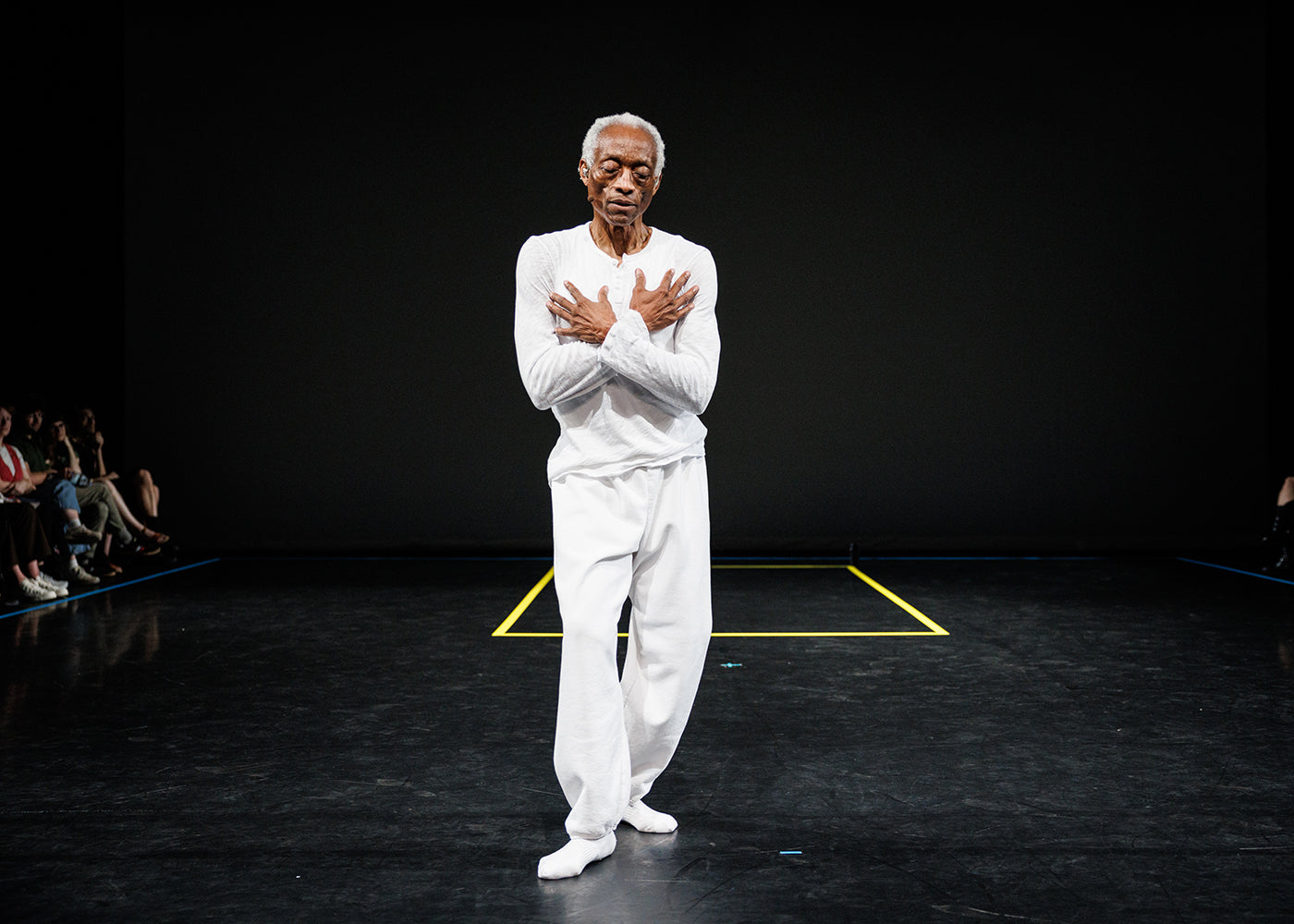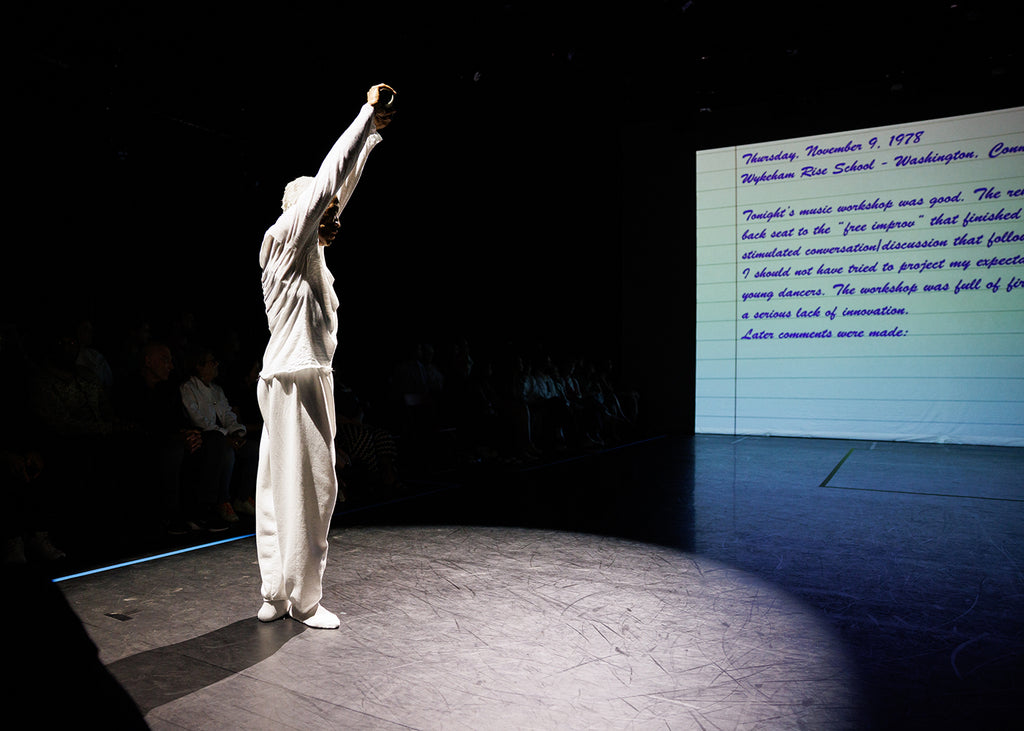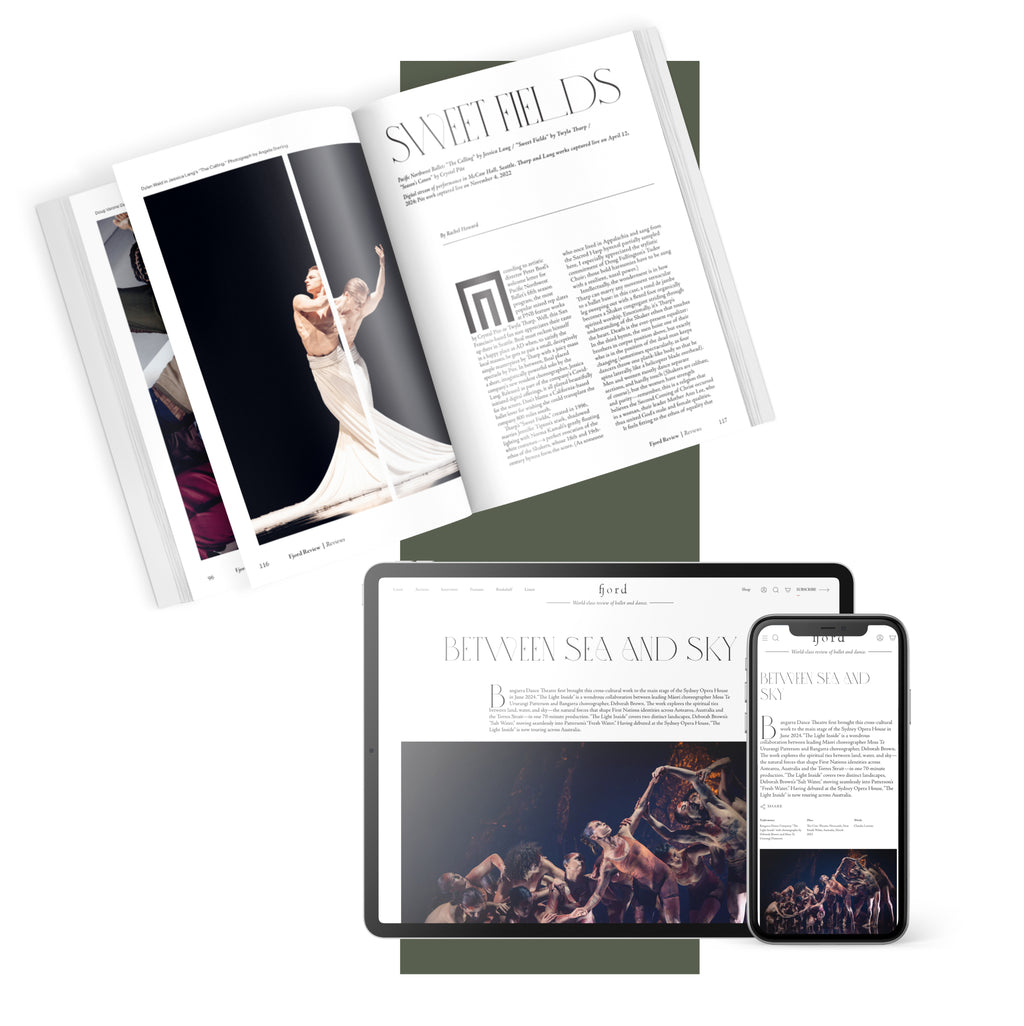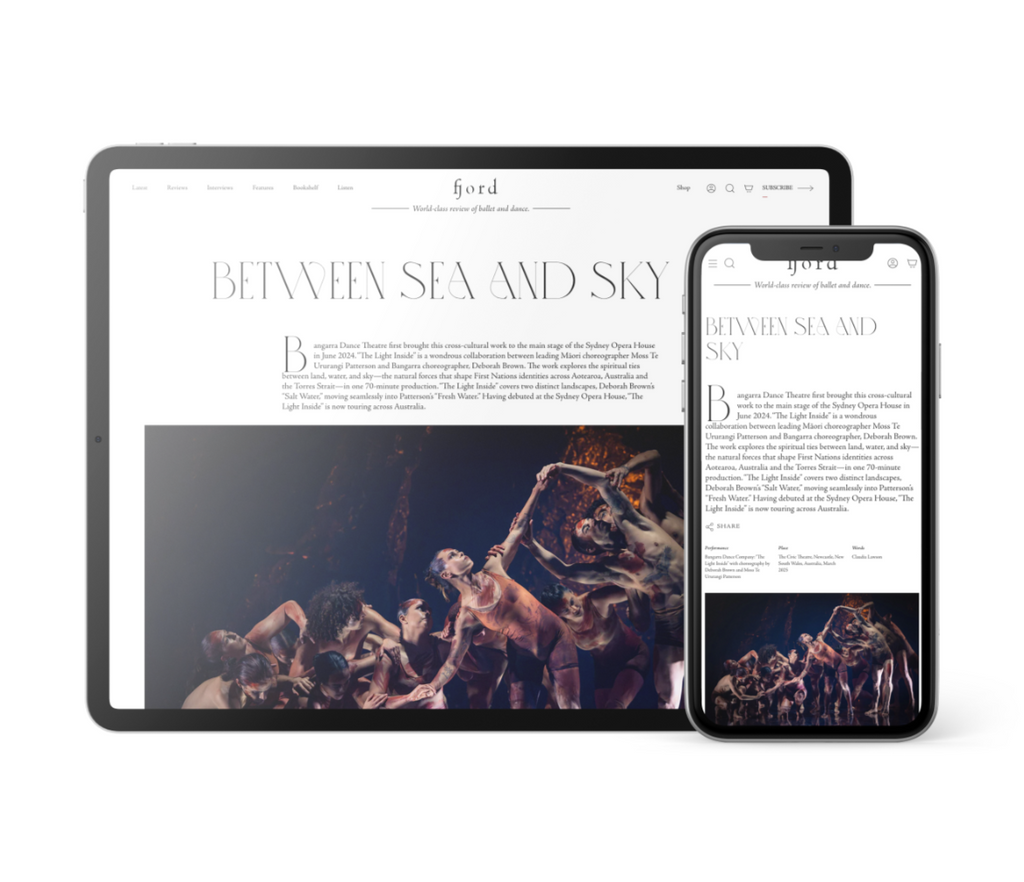Rather than simply accumulate toward a whole, the how-I-came-to-be-an-American format swerves to its climax, in a final monologue from Huiwang.
Huiwang is an incredibly liquid mover, and his finesse often draws my eye. Here, he hides himself in his hoodie and glides in a moonwalk—what could be more American? And yet, he stops to look up at a sign in Chinese characters, and tells us,” I’m not American.”
We move on from the other performers’ family lore to his first-person singular account of failing TOEFL exams and waiting in long visa lines, before ultimately, finding a stage, here, in America. He plays with his disclaimer to let us know he is not an American, “but his kids are,” and finally, he is not an American, ” . . . yet.”
From this cliff of hopeful expectation, Jones’ structure is shredded, with phrases from each monologue splicing together and overlapping as the migrating group frays. After a frantic grappling their voices coalesce, shouting “HELL NO!” with no one screaming louder than Jones himself, from his seat in the audience. Playing with iterations of sound, Pruitt grabs a pesky drone out of the air and says, “No.” Danielle Marshall sings softly while Hinds tries a softer, “Hello?”
Jones reflects on history as a kind of civic duty or PSA, perhaps so that we might not repeat it. Or so that critics might question the biases of their expectations from artists; so future generations of artists might feel they can bridge the professional personal divide when they hold so many “shared impulses and feelings,” as Jones and Ailey did; so that Americans might one day be able to fully appreciate and acknowledge that we are a nation of immigrants; so that we might be strong enough to scream “HELL NO,” to divisiveness and yet still leave ourselves vulnerable enough for a, “HELLO.”
Or to put it another way, in Jones’ own curt words to the audience after curtain calls on opening night, “Don’t be a puppet!”












I got a strong sense of the two works from this review—grateful!